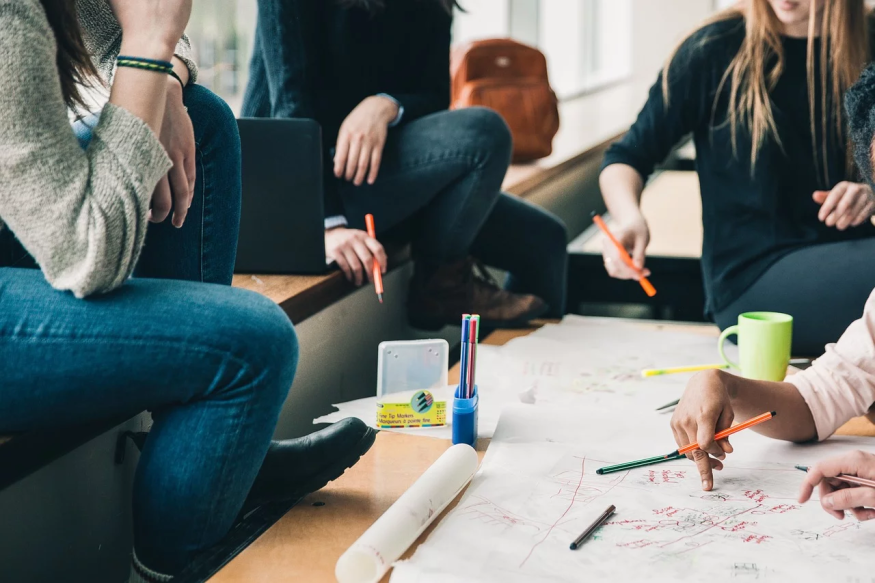
Pedagogical innovation is the process of developing, implementing, testing and evaluating educational innovations that help to effectively achieve goals. Innovations and goals are closely interconnected: the educational process changes over time, the labor market imposes new requirements on future employees, and training is transformed. Modern students have more learning opportunities than ever before. Everyone can get professional writing help from experienced writers on fastessay.com online and learn from the best specialists.
What Are the Innovative Approaches in Modern Education?
The approach to learning is a basic principle, a set of requirements and goals, which is the basis for new technologies. The requirement of modern education is not to give students as much knowledge as possible, but to teach them to learn independently, not only to know but also to be able to operate on the information received.
The pedagogical innovations are based on two key approaches:
1. A personality-oriented approach involves orienting the educational process on the personality of each student. Modern pedagogy must take into account the unique experience and character of each student, develop his/her personality and talents. The implementation of this approach includes reliance on the principles of choice (students can choose the direction that they want to follow), trust (lack of authoritarian pressure from teachers), creativity and success, subjectivity, personality;
2. The competency-based approach. It focuses on the result of training, while the result is not a body of knowledge, but a complex of skills, the student's ability to solve problems, conflicts, and act in different situations. It's less important what the student knows - more importantly is whether he/she can respond to changes, show flexibility, manage emotions and be able to choose the right information. This innovation requires a radical revision of the education system, reforming the principles of assessment and organization of training.
5 Greatest Innovative Technologies in Education
Modern pedagogy offers such innovative pedagogical technologies.
● Project work. It is a type of activity that helps to develop students' creative abilities, to form teamwork skills in them. The goal of the projects is to update and use in practice, expand and deepen the knowledge gained. Work on a project can take place individually, in pairs or in small groups; it implies the solution of a problem, the search for optimal solutions. Teachers actively use the integration of disciplines in projects, for example, they offer students to explore the interdisciplinary connections of language and literature, mathematics and chemistry, history and biology. This innovation forms and develops complex thinking, the ability to analyze, establish connections and create new ideas, see a holistic picture of the world.
● Gaming technology. Gaming performs several functions: entertaining, therapeutic, diagnostic, social. During the game, students engage in free developmental activities, taking pleasure and effect not only from the result but also from the process. In the educational process, the game is used as an element of a broader technology, part of a lesson or extracurricular work. A pedagogical game has a clearly formulated goal, which is presented in the form of a game task. All participants in the game obey pre-prepared and voiced rules.
● Distance Learning. It is an innovation that is being actively implemented in European countries and the USA. On specially designed sites, courses are created that include lecture cycles, assignments, a schedule of face-to-face consultations with teaching. Students independently organize time and discipline themselves for self-study. There are several sites on which schools and universities offer different courses in the public domain. Schools and universities are developing their own information resources that help students and teachers to interact and exchange experiences outside the educational institutions.
● Interactive technologies. Interactive technologies are methods that help teachers and students switch places. Interacting in groups, working on information, students discover new learning opportunities. This is a whole range of methods and techniques of work aimed at creating activities in which students interact with each other and work on a common problem. Interactive technologies are realized through holding seminars, disputes, problem lectures, discussions at schools, in which students can present their thoughts and learn to argue their opinion.
● Portfolio. The portfolio helps evaluate the dynamics of learning outcomes. With it, you can visualize academic achievements and discoveries. This innovation is realized through such methods of information accumulation: electronic portfolios, "folders of achievements", "growth diaries". They record all the achievements, projects, gather materials that confirm participation in projects, discussions, the results of creative activity.
The listed technologies are used comprehensively, taking into account the main approaches. Choosing a technology and method of work, teachers should take into account the personal characteristics of students, their inclinations, and their needs.



